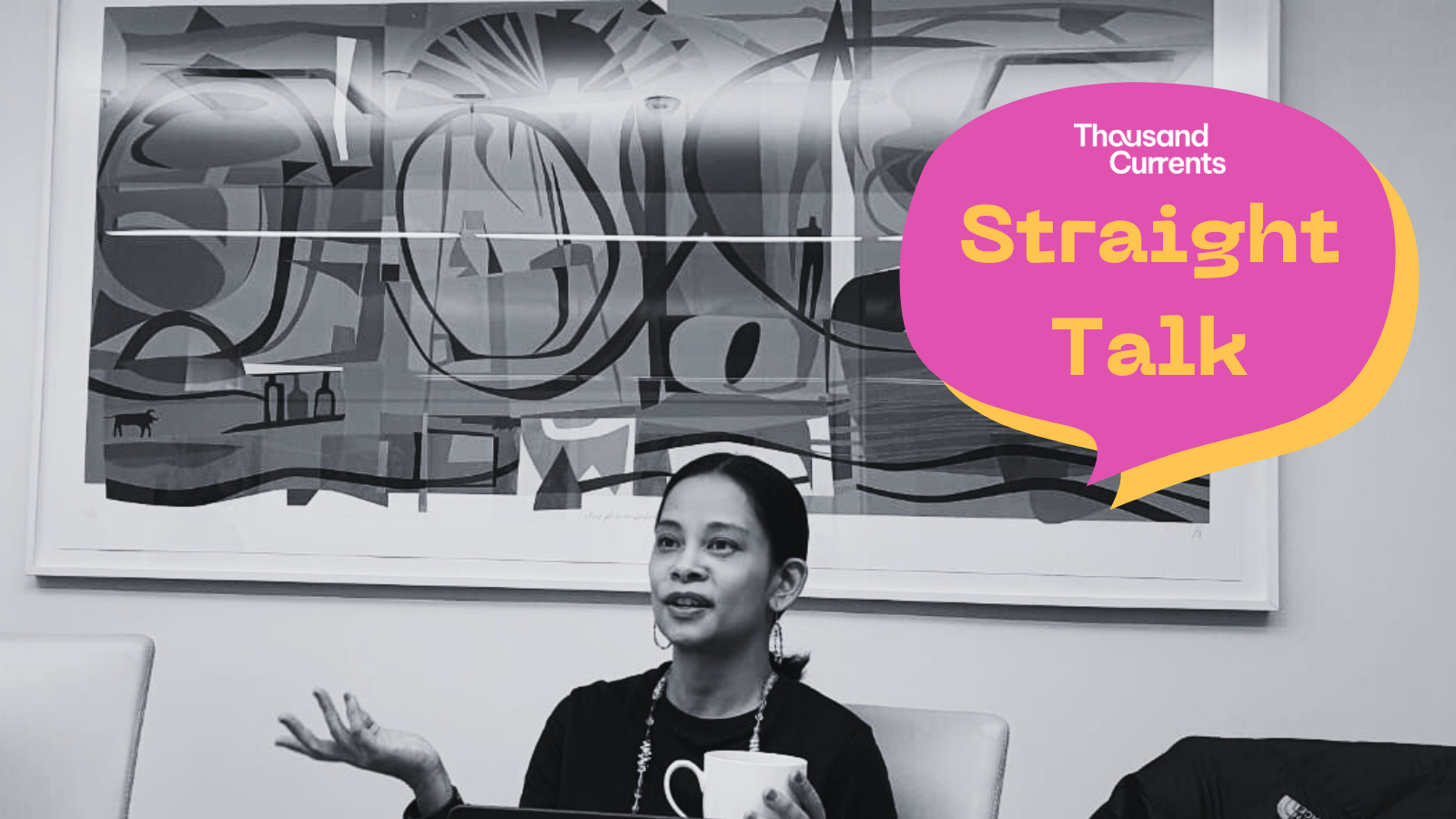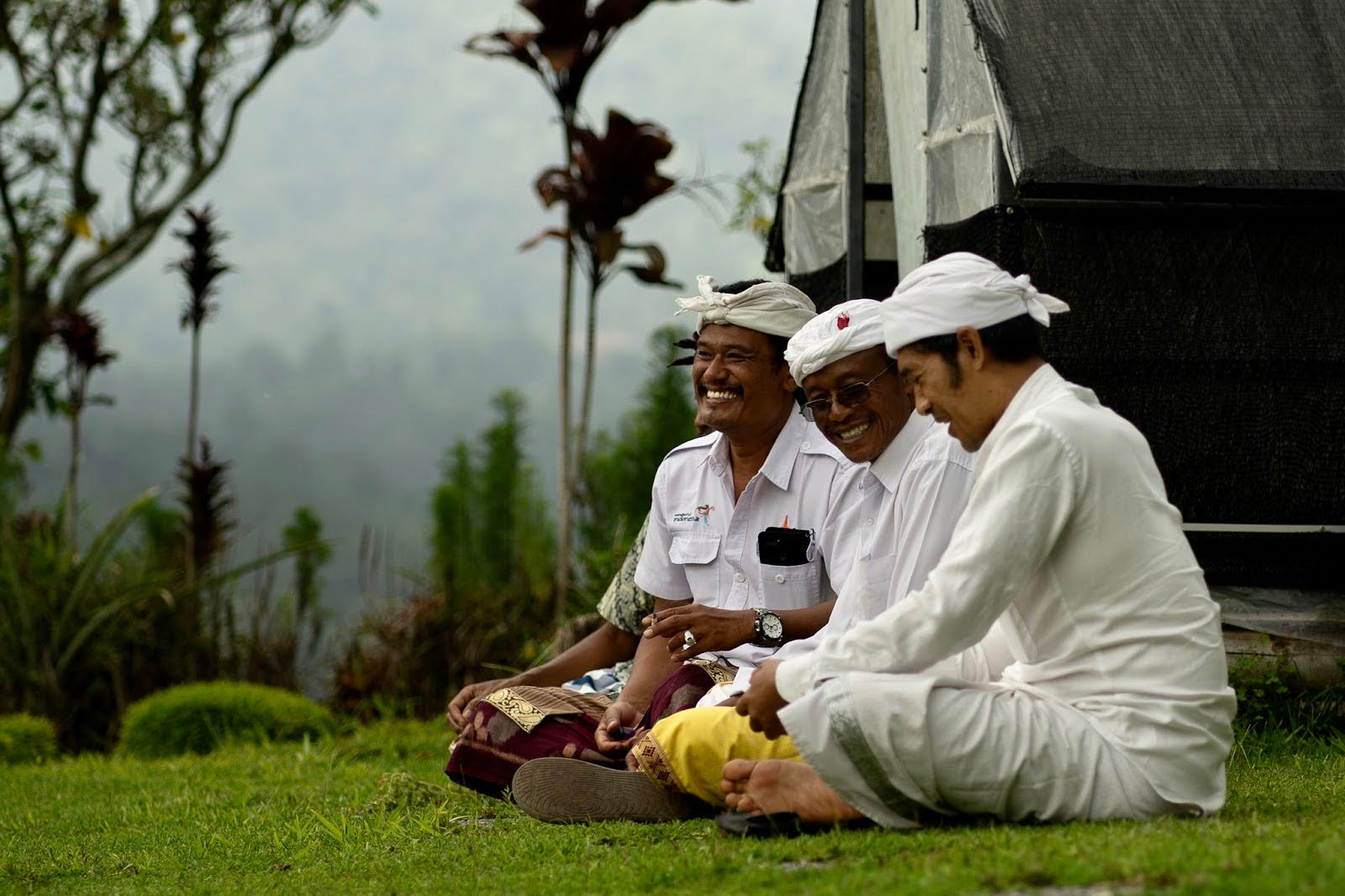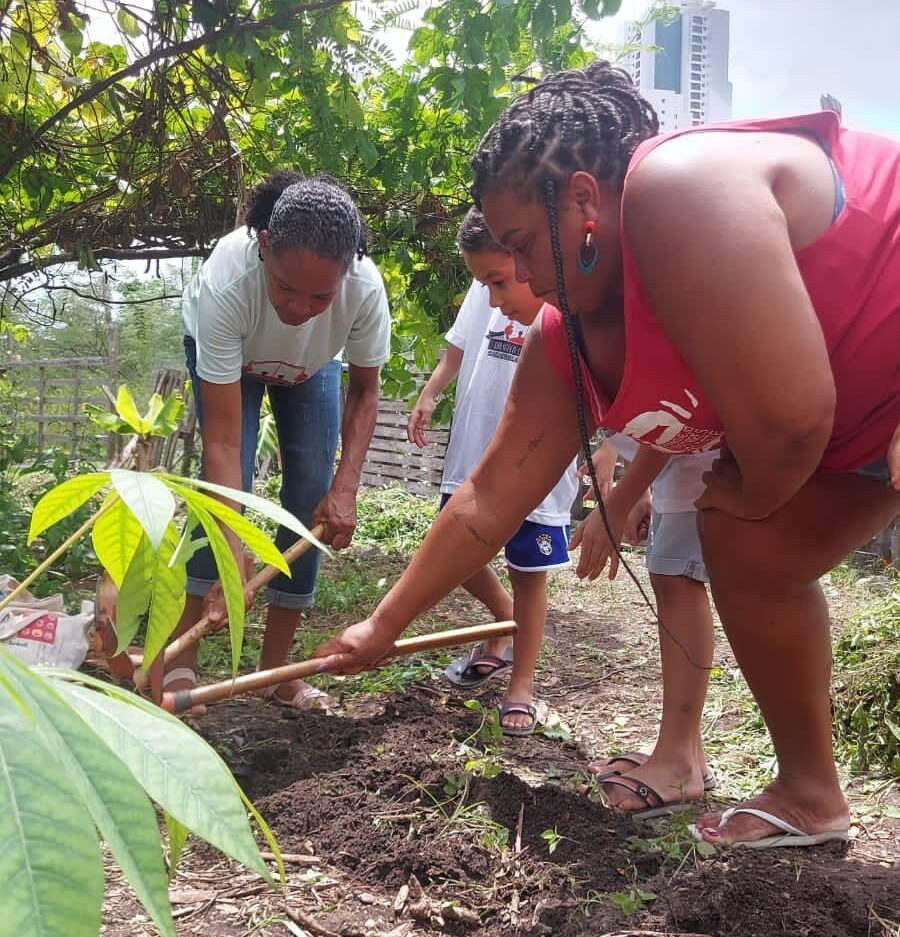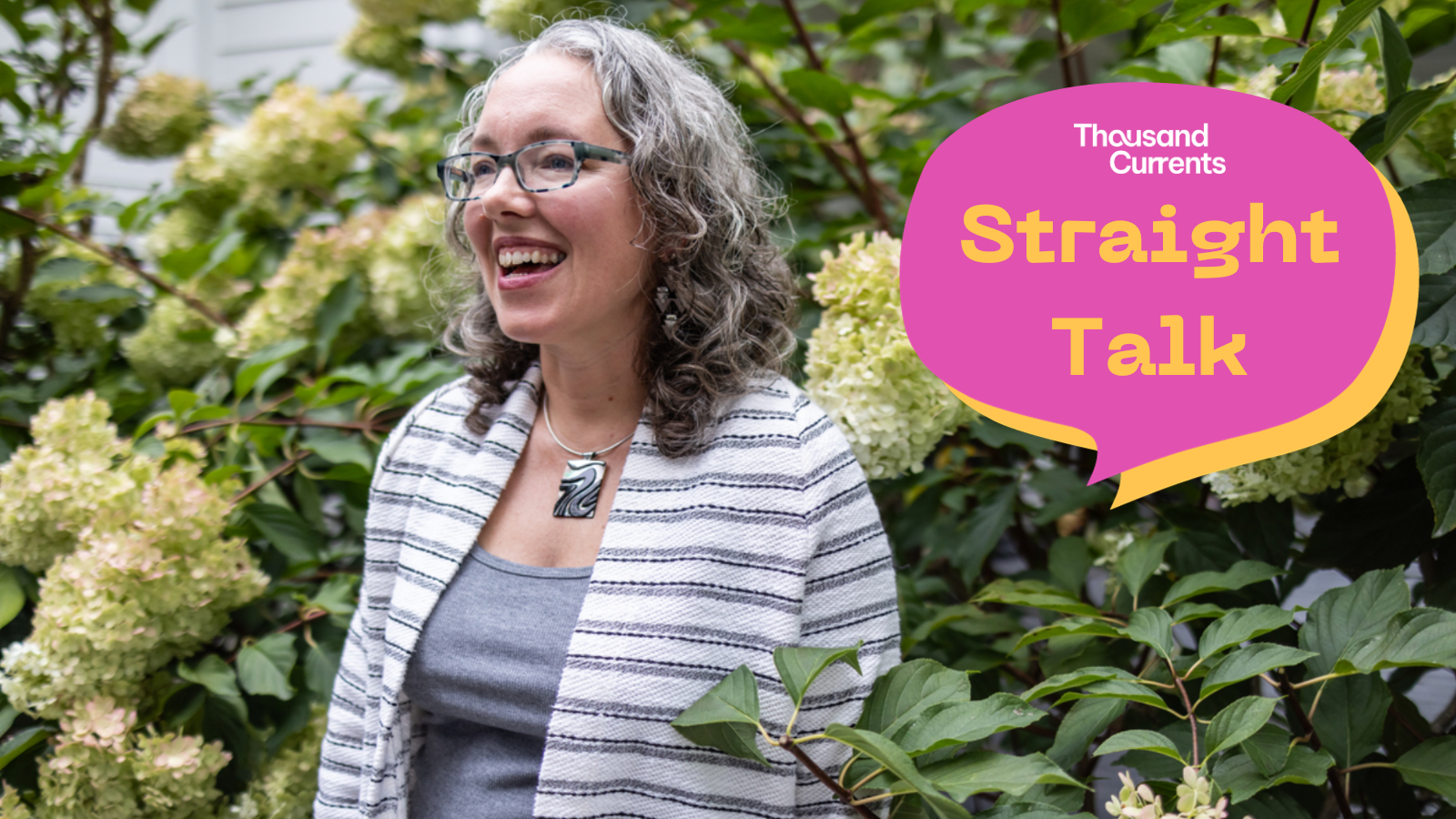Straight Talk: “Stories have the power to move people”

We’re back with Straight Talk, our interview series with members of the senior management team at Thousand Currents. On the heels of our 10-year strategic vision, this recurring series is where we explore the current state of philanthropy, share hopes and lessons from the donor landscape, and do some honest leadership reflections on what it means to advocate for more resources and recognition of grassroots organizing. To read the first piece from this content series, click here.
In this installment, we connect with Cindy del Rosario-Tapan. (At the time of interview, Cindy was the Director of Communications.) A member of the Senior Management Team, Cindy oversees the overall communications and narrative strategy at Thousand Currents. She is responsible for managing the curation of content that amplifies the work of our movement partners, and partnering with the philanthropic partnerships team to educate and organize our donor community—while always keeping our values centered along the way.
In this conversation, Cindy talks about the power that stories hold in influencing people’s minds and the humbling lessons she has learned from her connection with movement partners. Read on.

You’re still new in your philanthropic journey. What are your impressions?
Unlike the media companies and conglomerates I’ve worked at in the past who use their money to make more money, philanthropy attempts to use money ‘for good.’ That ‘good’ often includes funding many different social issues, but it’s really just an attempt. And it ignores how wealth became so disproportionately uneven in the first place, so it is a flawed model. I get that there are a lot of philanthropic entities that mean well, and want that ‘good’ to translate to real action. But intention is never enough, and I was surprised to learn that philanthropy shares many parallels with typical corporate spaces whose impact can often also be quite problematic.
What I really love about Thousand Currents, though, is that we are very aware of this tension even as we operate within it. And we’re very committed to transforming and changing the way that philanthropy works so that we can be more than mere lip service. My time at Thousand Currents has been a journey about interrogating the how and why of these good intentions, and learning how to connect a vision with practice and action.
Why are stories and narratives important?
The reason I do what I do is because I love stories in all shapes and all forms. Stories really have the power to move people. You can present a lot of data and evidence, but if people don’t believe you, if they don’t trust you, if they don’t buy into what you’re saying—none of that really matters. The vehicle of storytelling is a powerful tool to influence others and disrupt the status quo.
Narratives and storytelling are critical to philanthropy because people generally want to do good things, and they need messaging to help guide them in that effort. And, it’s a crowded marketplace with information overload, so it can be difficult to know how to take meaningful action. Compelling storytelling can help cut through the noise, not just to get money in the door, but to understand what you’re working towards and why. When stories start to influence people and help them understand what you’re doing, you help them become better advocates and allies.
What have you learned from our movement partners?
Our partners always provide a boost for me when I get tired or drained. The brilliance of their leadership informs everything we do, including weaving narratives together to tell the story about the hard, necessary work of changing broken systems. My recent trip to the Pacific was like a spiritual experience, where I witnessed first-hand the power and persistence of our movement partners.
I have also learned from them that change doesn’t happen overnight, nor does it happen in a linear way. That’s been a humbling lesson to absorb for me as someone with a non-philanthropic background. You have to be able to move with the tide, and whatever is pulling you in certain directions, that’s where you have to go—even if it feels like a detour. I have learned to adapt constantly and be willing to adjust without compromising on our values. The Communications team applies those lessons to our content generation, adjusting our editorial calendar based on what’s emergent and letting go of things that no longer apply.
What do you think needs to shift in philanthropy? And how do you see Thousand Currents playing a role in doing that?
The way we fund needs to change. More flexible funding, more long-term support, and more unrestricted money needs to move to movements. I also think the whole interrogation of impact versus intention really needs to be turned on its head. The self-righteousness needs to be called out and we need to lead with a lot more humility and grace.
We already know from Rajiv’s spotlight that Thousand Currents staff aspire for a world in which philanthropy does not exist. In that future, corporate culture ceases to monopolize food systems and dictate economic ways of being, and the planet has cooled down after many years of global warming. When this day comes, philanthropy no longer needs to offset the damage done by these destructive systems, and movements can do their work without interference. This is the vision we have to believe is possible.
For my part, I hope that we can move this future forward with brave and bold storytelling. I hope to continue to shine a light on the different ways that social movements and grassroots groups are working towards change with grace and dignity, in the midst of so many different, disturbing circumstances.
What sustains you in working towards this vision?
What gives me hope is that there are more and more groups, organizations, and people who are becoming increasingly aware of the problems, and therefore becoming sharper at critiquing and solving them. When I first heard the term trust based philanthropy, I had no idea there were so many restrictions placed on most grantee partners. Now that I know more, I am so proud to be a part of an organization like Thousand Currents who provide a whole ecosystem of grantmaking support. We make grants to groups with emerging ideas, new tactics, and we exclusively support formations in the Global South. Still, these models are still more of an exception than the norm, so we clearly have a lot more work to do. And what I love about Thousand Currents is that we are not afraid to tackle this work together. The more we learn, the more we unpack about how to move through the change we want to see. It isn’t enough to declare that one is working towards ‘doing good.’ The question we need to ask is: how are we living it?
As told to Deepa Ranganathan.
Part 2 of a leadership interview series. Check out all previous interviews by clicking here.
Related Stories



